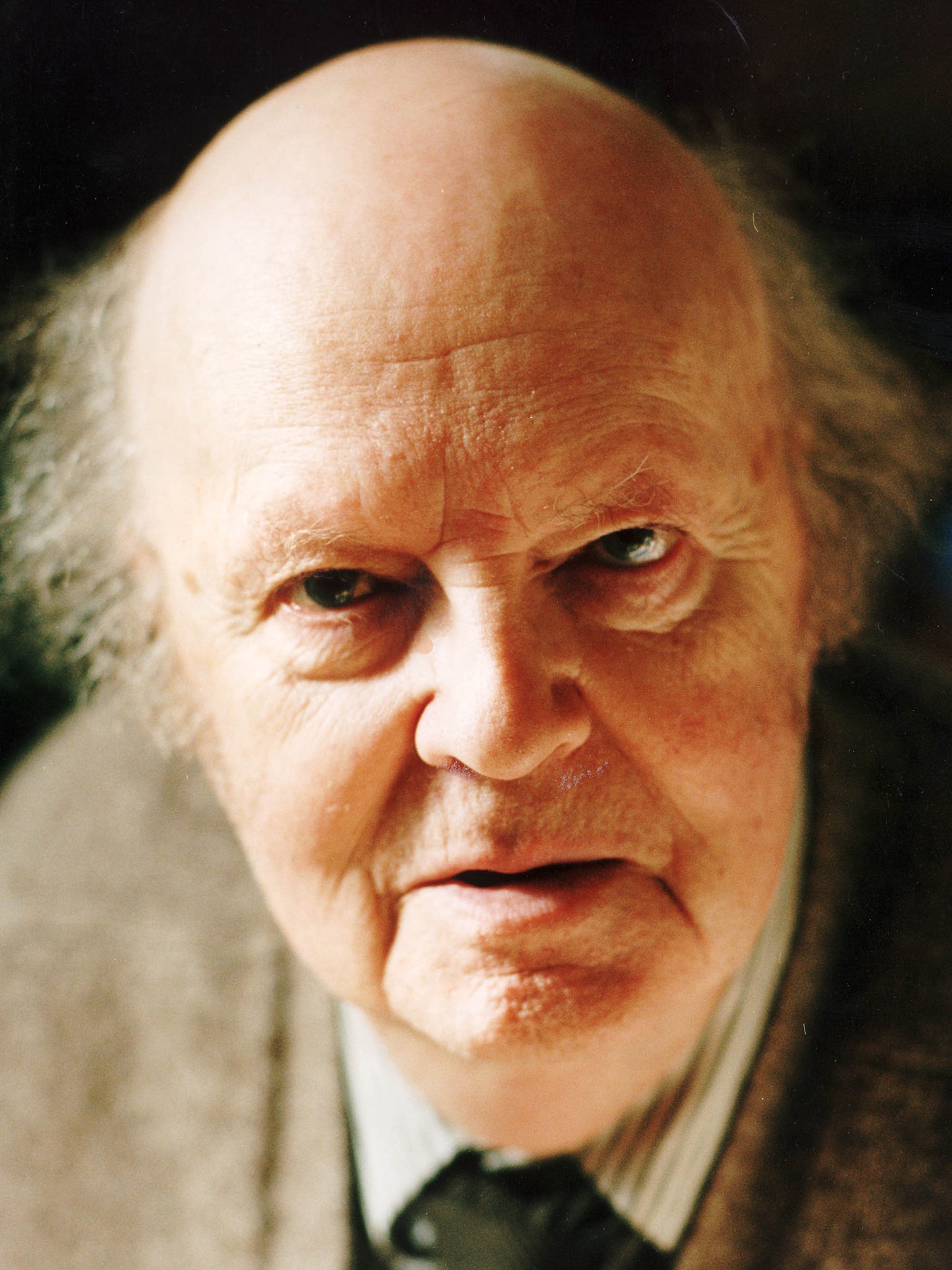John Bayley: Author and literary critic who wrote a tender, unflinching account of the final years of his wife, Iris Murdoch
The Oxford don was one of the great literary critics of the post-war period

John Bayley was one of the great literary critics of the post-war period. An Oxford don, he achieved recognition outside the world of academe as the author of the best-selling biography Iris: A Memoir of Iris Murdoch, an account of his wife's final years and her decline through Alzheimer's disease.
Bayley was born in 1925 in Lahore, British India, and educated at Eton. His love of literature had started in childhood; "almost all my life took place in books," he once recalled. Following wartime service in the Army, he went up to Oxford in 1947, reading English at New College and graduating with a First.
He continued as a tutor at Oxford, where he and Murdoch met at a party at St Anne's College in the spring of 1953. The pair wed three years later. "So married life began," he later wrote, "And the joys of solitude. No contradiction was involved... To feel oneself held and cherished and accompanied, and yet to be alone. To be closely and physically entwined, and yet feel solitude's friendly presence, as warm and undesolating as contiguity itself."
Theirs was an unconventional marriage, defined in its early years by Murdoch's frequent affairs with men and women and the couple's chaotic household management. "She fell in love all the time," Bayley commented. "But she also fell into friendship all the time – the two were so much the same with her. She lived literally for love and for friendship."
He was, from 1974 to 1992, the Warton Professor of English at St Catherine's College, Oxford. His pupils included the dramatist Dennis Potter and AN Wilson, who later wrote the biography Iris Murdoch As I Knew Her (2003).
Bayley's studies of authors including Goethe, Hardy, Tolstoy and Pushkin are remarkable for their ability to open up their lives not only through their work as writers, but for his insight into the individual personalities behind the writing. Comparing two of his subjects, for example, he says, "If Goethe cared for nothing but himself, Tolstoy was nothing but himself; and his sense of what awaited him and of what life had come to mean for him is correspondingly more intimate and more moving."
Writing about Hardy, Bayley again emphasises the importance of considering two facets of the writer as a human being, contrasting Hardy as a "noticer" of people and events, with Hardy the professional author, a "reflective commentator" who conveys those observations to his reader.
Following retirement, he wrote extensively for the London Review of Books and The Times Literary Supplement. For this newspaper he wrote an obituary of the academic John Wain in 1994, noting with characteristic directness that "Wain's was also a gregarious and affable personality who had no interest in grumbling and complaining about society, or in the self-cherished gloom that surrounded his friend Larkin."
Murdoch began to show the symptoms of Alzheimer's disease, the "insidious fog" as Bayley called it, in 1995. Her 26th work, Jackson's Dilemma, had just been published. Paul Levy recalled in this newspaper asking her about her next book. "I don't think there will be another one," came the reply.
In Iris: A Memoir of Iris Murdoch (1999) Bayley describes with profound tenderness the gradual decline of the great author. As the fog became denser, so the couple grew nearer. "Every day we move closer and closer together... There is a certain comic irony – happily, not darkly comic – that after more than forty years of taking marriage for granted, marriage has decided it is tired of this, and is taking a hand in the game."
One reviewer noted of this work: "Here is love heroic, love that doesn't hedge, love for which there are no ready outs..." And while critical reception to the book was generally positive, the novelist Dame Muriel Spark, a family friend, accused Bayley of "muckraking". His former student, AN Wilson, a friend of Murdoch since his time at Oxford, resented Bayley for turning Murdoch into what he called "the Alzheimer's Lady". The book was made into the film Iris (2005), directed by Richard Eyre and starring Kate Winslet and Hugh Bonneville as the younger couple, with Judi Dench and Jim Broadbent portraying Murdoch and Bayley in their later lives.
Following Iris Murdoch's death in 1999 (Independent obituary 10 February 1999) Bayley wrote two further books about those last years and the aftermath. In the third, Widower's House (2001), he writes of coming to terms with Murdoch's passing and of "...sinking into daily depression and flying into rages... I loved Iris more than I had ever done before, and felt closer to her than I had ever felt before"
He also describes attempts by two fictionalised women, Margot and Mella, to bring him out of the house and into their beds. When the ensuing real-world attention from these confessions became too much, he escaped to Lanzarote with his new wife, the heiress Audi Villers.
Asked about whether he was ready for his own death after Murdoch had died, Bayley replied "...all the stoic philosophers have always suggested that you should be prepared for death, and once you come to a certain age I think you are. Or I am, anyway."
Marcus Williamson
John Bayley, academic, literary critic and author: born Lahore 27 March 1925; married first 1956 Iris Murdoch, second 2001 Audi Villers; FRSL 1967; FBA 1990; CBE 1999; died Lanzarote, Canary Islands 12 January 2015.
Join our commenting forum
Join thought-provoking conversations, follow other Independent readers and see their replies
Comments